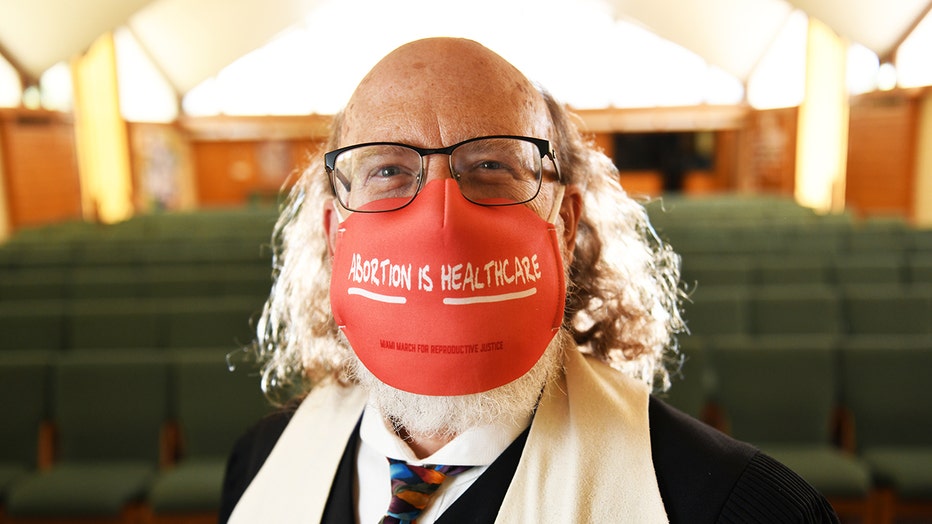Florida Senate ready to take up 6-week abortion limit
Previous: First hearing for 6-week abortion limit bill
After lawmakers passed a 15-week limit last year, the Florida House on Thursday started moving forward with a proposal that would prevent abortions after six weeks of pregnancy.
TALLAHASSEE, Fla. - The Florida Senate on Thursday will take up a proposal that would prevent abortions after six weeks of pregnancy, amid a debate refueled by the U.S. Supreme Court’s decision last year to overturn Roe v. Wade.
The Senate Fiscal Policy Committee on Tuesday voted 12-7 to approve the bill (SB 300) after hearing often-emotional testimony from people on both sides of the issue. That approval sent the issue to the full Senate, where it is scheduled for a Thursday floor session.
"Abortion has touched every single one of us, and we should grieve for what we have done as a country," Senate sponsor Erin Grall, R-Vero Beach, said. "We should make certain that our laws reflect the strongest protections for innocent life."
But opponents said the bill would effectively end legal abortions in Florida, as many women don’t know they are pregnant at six weeks or wouldn’t be able to get appointments and meet other requirements during that time frame. Opponents said it would deny access to health care for women.

FORT LAUDERDALE, FLORIDA - JULY 13: An abortion rights activist holds a sign at a protest in support of abortion access, March To Roe The Vote And Send A Message To Florida Politicians That Abortion Access Must Be Protected And Defended. (John Parra/
"This is a ban," Sen. Lori Berman, D-Boca Raton, said. "Let’s call it what it is."
The Republican-controlled Legislature and Gov. Ron DeSantis last year approved a 15-week abortion limit. But that came before a June ruling by the U.S. Supreme Court that overturned Roe v. Wade, allowing states to control abortion laws.
The proposed six-week limit includes a major caveat: Seven abortion clinics and a physician filed a constitutional challenge to the 15-week limit. A key issue in that case is whether the limit violates a privacy clause in the Florida Constitution that has helped protect abortion rights in the state for more than three decades.
Previous: Lawmakers consider 6-week abortion ban in Florida
The state’s timeline for abortions took a nosedive in last two years, going from allowing up to 24 weeks for the procedure down to 15 weeks in 2022. Now there’s a move to narrow the scope even further to six weeks.
Under the Senate bill and a similar House proposal (HB 7), moving to a six-week limit would be contingent on the Florida Supreme Court effectively upholding the 15-week law. It is unclear when the court will rule on the challenge, though it probably will be after the legislative session.
The House version has been approved by the Healthcare Regulation Subcommittee and is ready to go to the Health & Human Services Committee.
In addition to the six-week limit, the bills include other proposed changes, such as requiring that abortion-inducing medication be provided in person by physicians and not through the mail. Also, the bills would prevent abortions from being provided through telehealth and would expand services provided through organizations that counsel women against abortions.

MIAMI, FL. - JULY 29: Universalist Unitarian Church Rev. Tom Capo, a pro-choice clergy, inside the chapel of his church on Friday, July 29, 2022 in Miami. . (Taimy Alvarez for The Washington Post via Getty Images)
Last year’s 15-week law has drawn criticism because it does not include exceptions for pregnancies caused by rape or incest.
The new bills would allow abortions up to 15 weeks of pregnancy in cases of rape or incest, but they would require women to present documentation to prove they were victims. Such documentation could include restraining orders, police reports or medical records.
Critics said Tuesday that the six-week limit would lead to women traveling to other states for abortions, undergoing unsafe abortions or having unwanted babies.
"Whatever we do here today, abortions are still going to happen," Sen. Shevrin Jones, D-Miami Gardens, said. "Whether legally or illegally and dangerous, abortions will still happen."

A woman holds a pro-life sign before Florida Gov. Ron DeSantis (R) speaks to supporters at a Unite and Win rally at OCC Roadhouse & Museum in Clearwater, Fla. on Saturday, November 5, 2022. (Thomas Simonetti for The Washington Post via Getty Imag
Tuesday’s committee vote was along almost straight party lines, with Sen. Alexis Calatayud, R-Miami, joining Democrats in opposition.
Grall and other supporters said the bill would help protect life.
"I believe in the sanctity of life," Sen. Jim Boyd, R-Bradenton, said. "And I believe that when we’re elected to these positions, that’s one of our greatest charges, is to protect life."
— News Service Assignment Manager Tom Urban contributed to this report.

